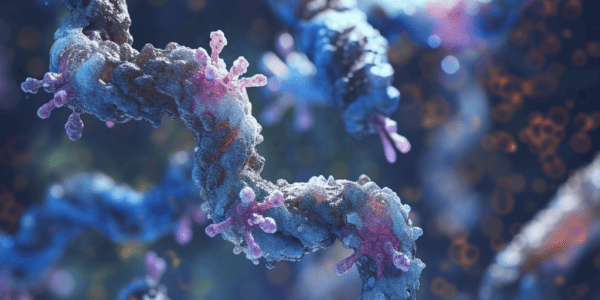New Geological Scenario Proposed for the Origins of Life on Earth
Recent research from Ludwig Maximilian University proposes a new geological scenario for the origins of life, focusing on RNA replication in unique volcanic island conditions. This study highlights how simple geological processes may have facilitated the emergence of life on early Earth, providing insights into the complex interplay between environmental factors and the development of genetic material.
Study Reveals USP50’s Key Role in DNA Replication and Genome Stability
A groundbreaking study published in Nature Communications reveals the crucial role of the protein USP50 in DNA replication. Led by Professor Jo Morris from the University of Birmingham, the research highlights how USP50 regulates essential enzymes, ensuring smooth DNA replication and maintaining genetic stability. This discovery could pave the way for new approaches in treating genetic disorders and cancer.
Study Reveals Conditions for Life’s Origins on Earth and Beyond
A groundbreaking study published in eLife reveals that gas flow over water in early Earth environments may have facilitated nucleic acid replication, crucial for the emergence of life. The research highlights volcanic islands as potential cradles for life, suggesting simpler conditions for life’s origins and opening new possibilities for extraterrestrial life. Discover how this study reshapes our understanding of life’s beginnings and its potential beyond Earth.
Scientists Make Groundbreaking Discovery in Understanding Ebola Virus Replication Process
Scientists in Canada and the U.S. have made a groundbreaking discovery in understanding the replication process of the deadly Ebola virus. The research sheds light on how the virus interacts with a human protein called ubiquitin and identifies a potential target for new drugs to prevent the disease. The study utilized a combination of experimental and computational methods to investigate the interaction between the Ebola virus VP35 protein and ubiquitin chains, leading to the identification of potential chemical compounds that could disrupt this interaction. This breakthrough offers a promising avenue for the creation of more effective therapies to combat the devastating outbreaks and high mortality rates of the Ebola virus.
Breakthrough in Understanding Bacterial Genome Regulation through Transcription-Replication Interactions
Researchers have made a significant breakthrough in understanding bacterial genome regulation through transcription-replication interactions. The study, published in Nature, sheds light on the dynamics of gene expression at the genome scale, providing a novel classification of regulatory modes based on…





